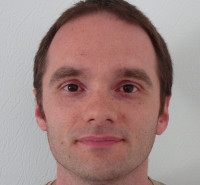Big Data
Economics & Global Development
Behavioral Economics & Decision Sciences
Decision-making, Bias & Fairness
Econometric Models & Mathematics
Ph.D
United Kingdom
2010.03.31
Probabilities in Decision Trees: the impact of action on uncertainty
Lost in decision? A theory may help!
Biography
Shweta is currently pursuing a PhD in Decision Sciences at the London School of Economics and exploring decision making under risk and uncertainty. She is supported by the AXA Research Fund in this endeavour.
Shweta holds an M.Sc. in Mathematics from the University of Cambridge (Commonwealth Scholar) and an M.Sc. (Distinction) in Decision Sciences from the London School of Economics. Her Master’s thesis at Cambridge explored alternative mathematical approaches in the field of Mechanism Design, highlighting the limitations of quantitative methods when studying human behaviour. Her Master’s thesis at LSE was a collaborative project with the Behavioural Finance Team at Barclays Wealth through which she helped explore and model an alternative measure of financial risk, subsequently using it to risk rate financial products for clients with varying risk attitudes. She continued working part time with the team after her M.Sc. and designed a risk rating tool that can be used to evaluate the inherent risk in a diverse range of financial products.
Alongside her M.Phil. at LSE, Shweta also worked as an analyst for Decision Technology and LSE Enterprise, where she was able to explore her interest in developing and implementing models that integrate mathematical techniques with real world behaviour. She was involved with several commercial projects primarily concerned with understanding the psychology of consumer behaviour.
Between her Master’s degrees, Shweta took a gap year to travel and volunteered as a mathematics teacher at a school for alternative learning in Hampshire, UK. She used her time to read a wide range of interdisciplinary discussions on human behaviour.
Shweta has a strong passion for research and is interested in understanding the foundations of theories and thinking deeply about their implications as well as application. She has attended a number of conferences in mathematical economics, game theory and cognitive sciences.
What has your AXA fellowship brought you?
The AXA fellowship has given me the opportunity to pursue my passion for research, while helping to promote a greater understanding of the foundations of theories that guide human reasoning. I am particularly interested in exploring ideas and modelling techniques that can help bridge the gap between industry and academia. The grant from the AXA Research Fund has enabled me to pursue my research in the areas of risk and uncertainty as a PhD student in the Decision Sciences Group at the London School of Economics. This group provides a stimulating and supportive atmosphere to pursue applicable research under the guidance of distinguished mentors.
Could you describe your experiences with the AXA Research Fund community?
The event with the Research Fund community was an excellent opportunity to meet like-minded scholars and exchange notes on our ongoing work. The AXA team was extremely warm in their reception and wholehearted in their support. I felt I got a better understanding of my fellowship and AXA’s vision on research. Their efforts to support innovative thinking and ground-breaking research is reassuring and I feel privileged to be associated with the Fund.
Can you briefly describe what your research project is about?
My research focuses on attempting to better model when and how actions can alter the uncertainty that the agent confronts, subsequently affecting the perception of risk involved in decisions. I am particularly interested in integrating precepts of causal reasoning with (pragmatic) decision support systems and developing a conception of risk based on the control an agent can exercise over the future states of the world. The motivation for my research stems from the fact that current models of decision making do not resonate with the managerial attitude toward uncertainty, which is viewed as something that they believe they control/influence and may decide to voluntarily engage with it. The endeavour of the research is to preserve the primacy of this intuition in the formal construct of models and produce potentially useful research that could help bridge the gap in the understanding between theorists and practitioners.
To add or modify information on this page, please contact us at the following address:
community.research@axa.com

Shweta
AGARWAL
Institution
London School of Economics and Political Science
Country
United Kingdom
Nationality
Indian
Related articles
Finance, Investment & Risk Management
Pandemics & Infectious Diseases
Economics & Global Development
Covid-19
Financial Markets, Modelling & Pricing
Economic Loss & Disaster Risk Financing
Insurance & Risk Management
AXA Award
France
2020.08.31
An Extreme Value Model For the Analysis of the COVID-19 Pandemic and Its Impact, and the Mitigation of Future Related Crises
The second strand of work will harness the vast wealth of functional data at our disposal to construct estimators for... Read more

Gilles
STUPFLER

